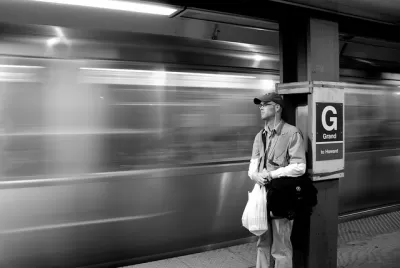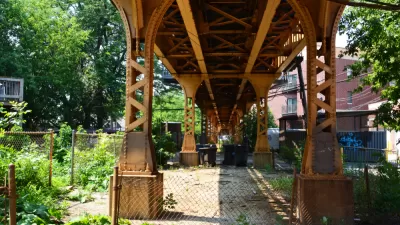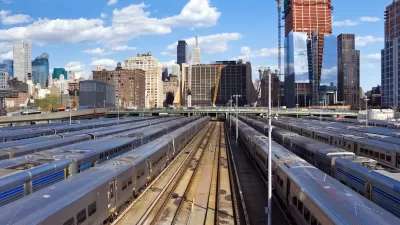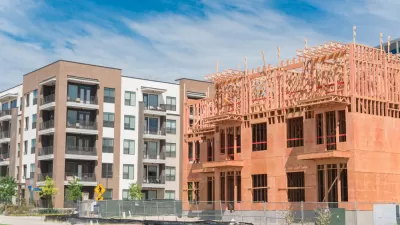The city of Chicago is focusing its development incentives around transit stations, but the people moving into those neighborhoods tend to be wealthier than previous residents.

"Some Logan Square residents are worried that new high-end apartments being built under a city ordinance aimed at promoting development near transit may be accelerating gentrification and pushing lower-income people farther away from the trains," according to an article by Mary Wisniewski.
According to the narrative arc of the article, Chicago is failing to live up the example in transit oriented development set by cities like New York, Philadelphia, Boston and San Francisco. "The Chicago area, meanwhile, saw a decline in development near transit relative to growth in the larger region, the study found." Further limiting the potential of the city's new transit oriented development to be a source of social equity is the growing affluence of new transit area residents as new projects come online. "[The] average household income in transit zones increased by 27 percent from 2000 to 2010," according to Wisniewski.
The article also allows Yonah Freemark to explain how new developments in the area of transit tends to be more expensive because they are new, also arguing that displacement might have been much worse if not for the new development. Freemark is quoted directly: "Displacement occurs more often when there's no construction at all — if you don't build new housing, all the wealthy people will move into existing housing stock….That's what we saw in Wicker Park and Lincoln Park."
The city of Chicago has thrown a fair amount of policy resources at transit oriented development (TOD) in recent years. The city expanded its TOD Ordinance in September 2015, and the Metropolitan Planning Council released a new "TOD Calculator" earlier this year.
FULL STORY: New buildings near 'L' mostly aimed at well-to-do

Maui's Vacation Rental Debate Turns Ugly
Verbal attacks, misinformation campaigns and fistfights plague a high-stakes debate to convert thousands of vacation rentals into long-term housing.

Planetizen Federal Action Tracker
A weekly monitor of how Trump’s orders and actions are impacting planners and planning in America.

In Urban Planning, AI Prompting Could be the New Design Thinking
Creativity has long been key to great urban design. What if we see AI as our new creative partner?

King County Supportive Housing Program Offers Hope for Unhoused Residents
The county is taking a ‘Housing First’ approach that prioritizes getting people into housing, then offering wraparound supportive services.

Researchers Use AI to Get Clearer Picture of US Housing
Analysts are using artificial intelligence to supercharge their research by allowing them to comb through data faster. Though these AI tools can be error prone, they save time and housing researchers are optimistic about the future.

Making Shared Micromobility More Inclusive
Cities and shared mobility system operators can do more to include people with disabilities in planning and operations, per a new report.
Urban Design for Planners 1: Software Tools
This six-course series explores essential urban design concepts using open source software and equips planners with the tools they need to participate fully in the urban design process.
Planning for Universal Design
Learn the tools for implementing Universal Design in planning regulations.
planning NEXT
Appalachian Highlands Housing Partners
Mpact (founded as Rail~Volution)
City of Camden Redevelopment Agency
City of Astoria
City of Portland
City of Laramie





























